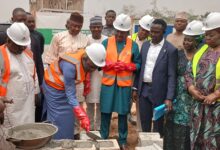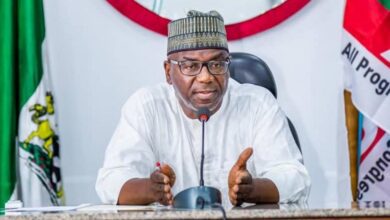Education Ministry Calls For Gender Equality Through Digital Learning

In the bid to recover from setback in education, especially that of the girl child in certain parts of the country due to insecurity and the covid-19 pandemic, The Federal Ministry of Education has called for drastic steps to be taken to regain the lost grounds.
The Minister of state for education, Barr. Chukwuemeka Nwajiuba made the call on Monday, October 11, 2021 in Abuja, while commemorating this year’s International Day of the Girl Child.
TheFact Nigeria gathered that the country was lagging far behind in girl child education and the use of Information and Communications Technology (ICT) in education.
The Minister, who was represented by The Permanent Secretary, Federal Ministry of Education, Arc. Sonny S. T. Echono said there was the need for all hands to be on deck in ensuring that Nigerian girls achieved irreversible progress towards gender equality through digital learning in both online and offline environment.
He further said that it was expedient to ensure that students benefitted from inclusive learning experiences in both content and access to digital materials. This, he stressed was key to achievement of economic and societal progress.
The Acting Minister of state for education (for the period of the Girl Child Day celebration), Miss Dorcas Joshua said that the national average for girls’ transition from primary to junior secondary which stood at 64 % was ‘unacceptable’ to her.
“A data shows, girl enligtenment and transition continue to be jeopardized. And even where enrolled, girls are less likely than boys to complete secondary
education due to so many reasons.
“Only one out of six girls who graduates from primary school, are able to transit to secondary school.
“I ask then… Where are the rest of the girls? We must find them. Where are they? What are they doing? Why are they not in school? What can we collectively and individually do to get them back to school?” She asked.
Miss Dorcas further decried the negative impact of the covid-19 pandemic on learning in the country. She said:
“Over the past one year, we all experienced the outbreak of the covid-19 pandemic and its effect on learning in Nigeria.
“Schools were forced to shut down for several months with learning having to be provided through television, radio broadcasts, and online platforms.
“Online Learning came with series of challenges including access to data, poor digital skills for learners, teachers and parents and unavailability of the necessary equipment”, Dorcas stated.
She continued: “Statistics have shown that; 89% of learners do not have access to home computers, 82% of learners do not have internet; with girls more likely to be cut off, and 37% of our youths remain unemployed due to lack of digital skills to match current required labor skills.
“There is a huge gender divide in access to digital literacy in favour of boys.
Digital revolution, therefore, cannot be without Nigerian girls.
“Nigerian girls want to go school, remain in school and transit to the highest level of education without difficulties”, said the Acting
Minister of State for Education.
An analysis of data from Nigeria’s Annual School Census of 2019/2020, indicated that the average transition rates from lower basic education (Primary) to upper basic (Junior Secondary) stands at 58% for the
northern states of Kano, Katsina, Kebbi, Sokoto and Zamfara.






